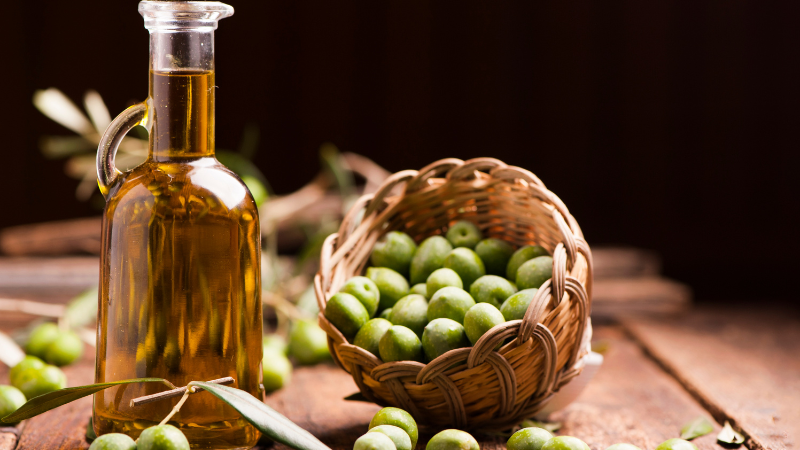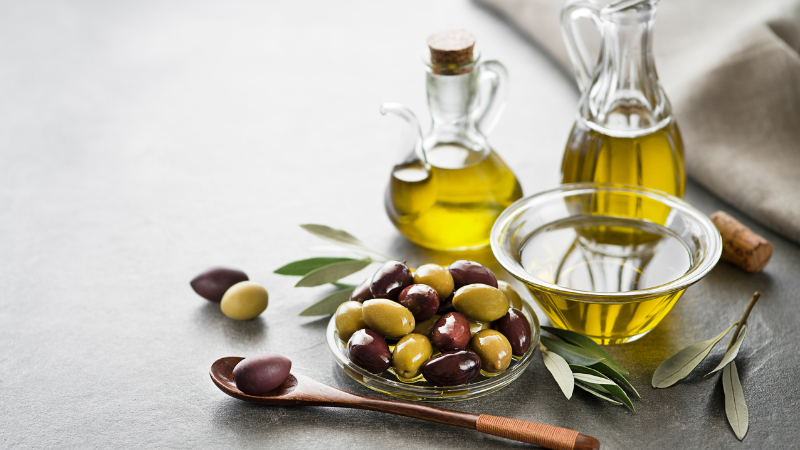Most Expensive Olive Oils in the World
Olive oil, sometimes called liquid gold, is a staple of many peoples’ diets and can be found in most kitchens. Originating – and still largely made – in the Mediterranean, olive oil dates back thousands of years.
Enthusiasts can’t get enough of the distinct taste and swear by the health benefits. But why does the price vary so much, and just how expensive can olive oil get?
Let’s take a look at what makes olive oils so expensive, a few examples of the most expensive olive oils in the world and how you can spot a high-quality olive oil.
What Makes Olive Oils Expensive?
Not all olive oils are created equal. There is a huge price difference amongst olive oils, ranging from your cheap everyday supermarket olive oil to luxury products that can set you back hundreds of pounds.
But are these expensive olive oils worth their hefty price tag? What exactly makes them so pricey?
Well, there are many factors that must be considered when making a high-quality olive oil. The expertise, labour, equipment and time needed to successfully execute all of these factors are what leads to the high final price.
Here are a few things that add to the cost of high-quality olive oil:
- Cold pressing: High quality olive oils are cold-pressed, meaning they are not exposed to heat during the pressing process. Avoiding heat means that producers get considerably less olive oil yield, but it is higher quality and retains the flavour of the fruit during the pressing process. However, cold pressing is expensive: 1kg of olive oil requires around 10kg of olives when heat is not employed to extract more juice. This is how extra virgin olive oil is made and why it commands a higher price.
- The short time between picking and processing: High quality olive oil has a very short time between the fruit being picked and being pressed. Ideally, the pressing process should start within hours of the olives being picked, because as soon as they have been picked, they begin to degrade and lose their freshness. This means pressings have to be done in smaller batches throughout the season, rather than all at once at the end of the season. This is less time-efficient and so leads to increased labour costs.
- Equipment: Artisan producers often lack mechanised equipment (mountainous orchards and heavy machinery don’t go together well), so pick and press their olives entirely by hand. This takes more time and labour than machine processing, increasing manufacturing costs.
- Import costs: High-quality olive oil is often imported from abroad, particularly Greece and Italy, which can lead to a higher final price to account for transport costs.
Which Olive Oils are the Most Expensive?
The most expensive olive oil on the market is the E-La-Won Luxury Edition from Greece. This has a whopping price tag of $729! This luxury olive oil contains edible gold flakes, which certainly contributes to its high price.
Its taste seems to live up to its price, with its nickname ‘liquid gold’ not just referring to the gold flakes, but also to its delicious taste.
Lambda, also originating from Greece, is another olive oil that commands a very high price. This luxury item can’t be found in your local supermarket; it is reserved for exclusive hotels, specialist retailers and gourmet restaurants.
If you fancy splashing out, Lambda will cost you $185 per litre. A very expensive Greek olive oil (<- click on that link for our award-winning Greek olive oil without the huge price tag!)
Which Is the Best Olive Oil in The World?
The best olive oil in the world really depends on your own taste and what you want from an olive oil.
Olive oils can be fruity, bitter, pungent, or any combination of these. Try a few different types to see what your preference is.
Some olive oils also have lots of antioxidants, which can be a good feature to look out for if you are looking a healthy olive oil.
Though personal taste is important, it can be helpful to look for award-winning olive oils, as these are usually highly respected in the industry.
Similarly, take a look at expert reviews and end-of-year lists to see which olive oils are currently impressing foodies.
What to Look for In the Best Olive Oil?
It can be hard to know if an olive oil is high quality if you don’t know what you are looking for. Some olive oils’ price may not line up with their quality. An expensive price tag doesn’t always indicate a good olive oil! There are a few things to check for:
- Make sure the olive oil is extra virgin. This indicates that it hasn’t been chemically refined or exposed to heat, which, whilst cheaper for manufacturers, produces a less flavourful final product. Extra virgin olive oil avoids this processing.
- Is the olive oil in an opaque container? Olive oil should be kept in a dark glass bottle or a metal container to keep out sunlight. Exposure to sunlight causes olive oil to degrade and gradually lose its distinctive taste and aroma.
- Smell: If you can, give the olive oil a sniff. It should have a pungent, fruity smell. If it has a waxy smell (like crayons), it is rancid and shouldn’t be consumed.
- Fatty acid content: High quality olive oil should have a fatty acid content of less than 0.8%. In fact, this is a requirement for it to be classified as extra virgin olive oil.
- Harvest date: Try to buy olive oil with a relatively recent harvest date. It’s important to remember that olive oil is a fruit juice and is best consumed as soon as possible. The fresher the olive oil, the higher quality it will be.
Summary
Olive oil prices can vary massively. This is because of the extra cost involved in producing high-quality olive oil (especially, extra virgin olive oil).
The most expensive and best olive oils can cost hundreds of pounds, but you don’t necessarily need to spend this much to get a quality product.
Use the tips outlined above to spot a good olive oil that doesn’t break the bank. A high-quality olive oil likely won’t be the cheapest one on the shelf, but doesn’t need to be the most expensive one either!
Alternatively, check out our award-winning Greek olive oil selection HERE



